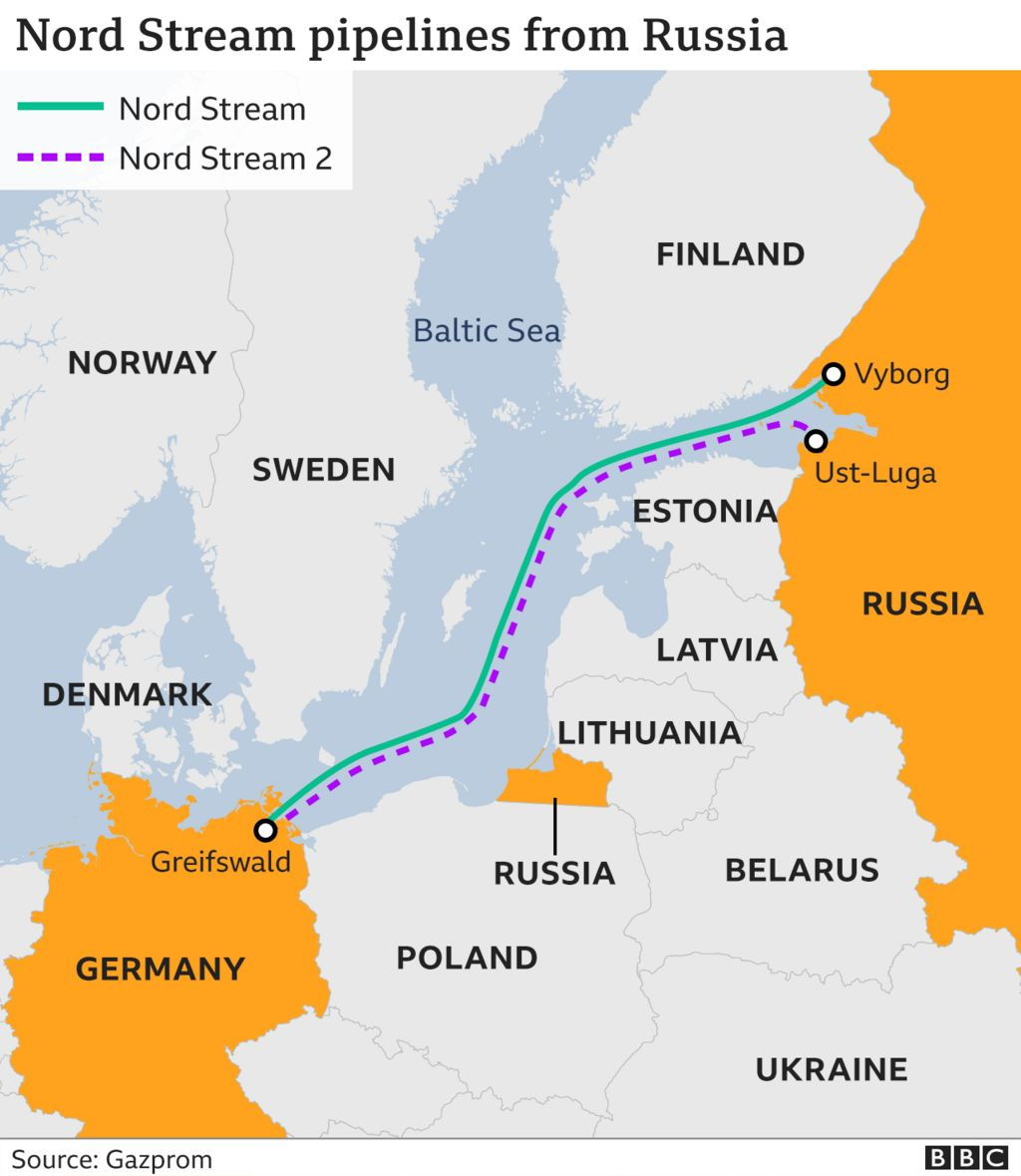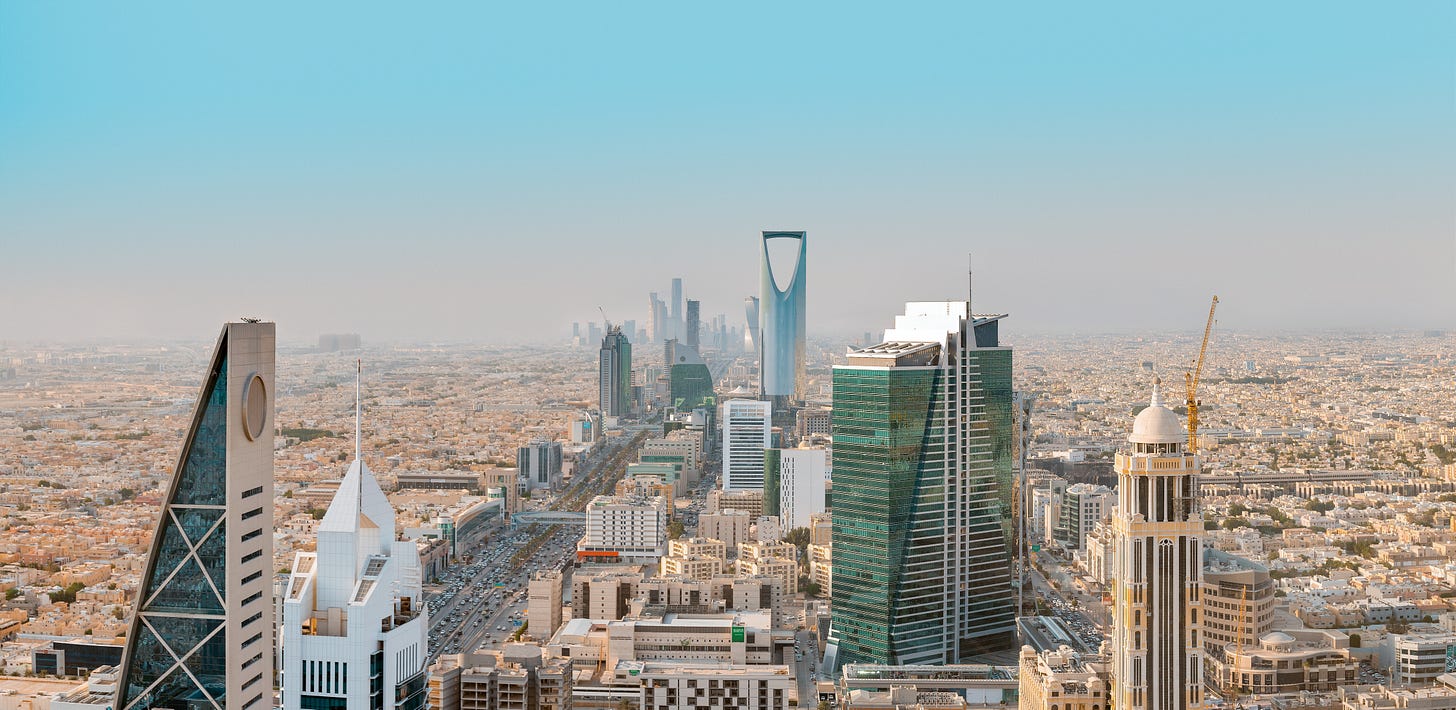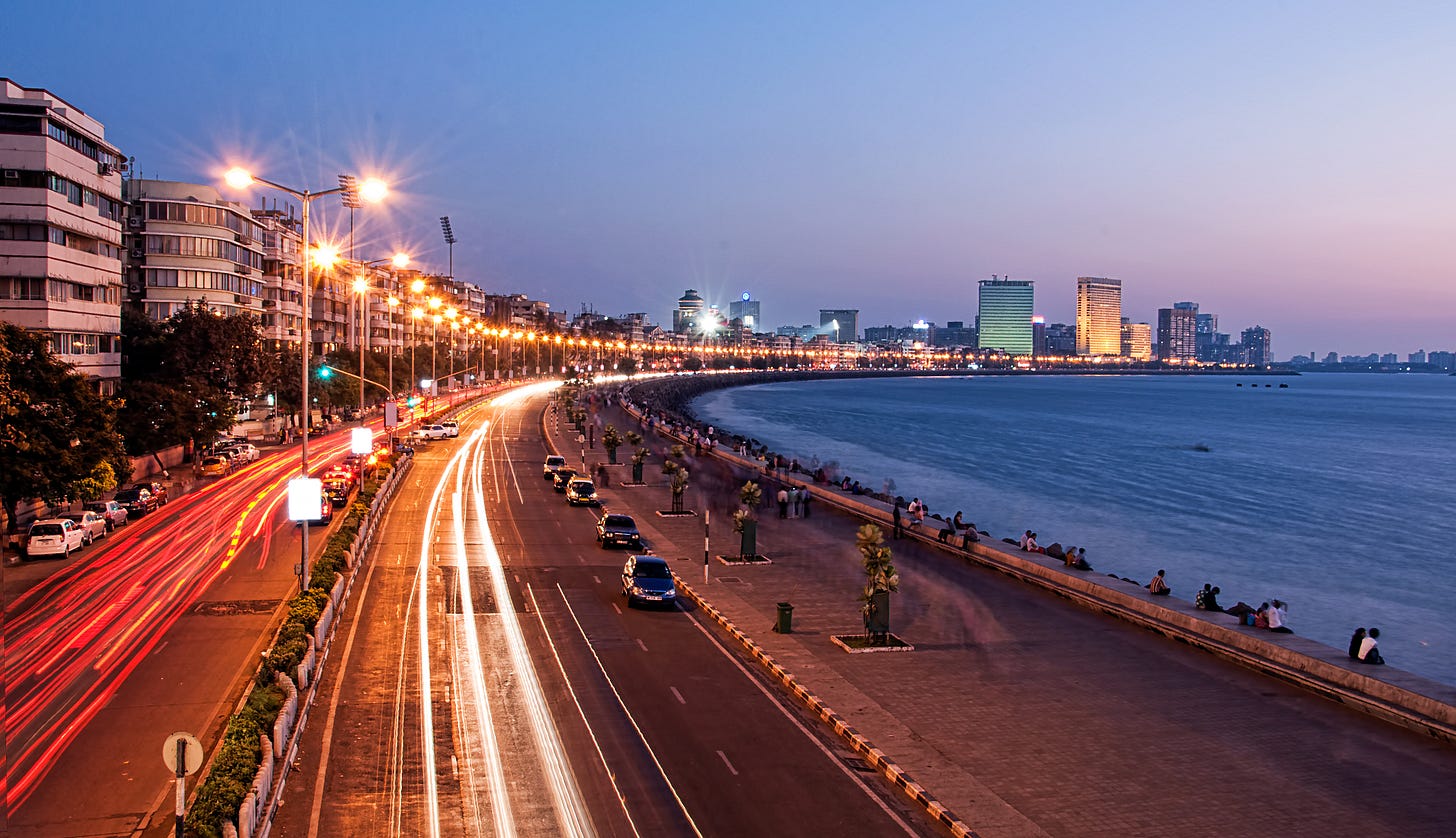Emerging Markets Monitor - Sept. 3
'Perfect Storm' Looms Over EM, Russia Shuts Off Nord Stream, Saudi Arabia's New Airline, China Economy To Lag Behind U.S, India To Be 3rd Largest Economy By 2029
The Top 5 Stories Shaping Emerging Markets from Global Media - September 3
Perfect Storm Threatens Frontier and EM Economies. Debt Crises Loom
National Public Radio
“The U.S. dollar strengthened to a 20-year high against a collection of foreign currencies this week, spelling more trouble for heavily indebted smaller nations around the world. The stronger dollar makes payments on loans owed in U.S. currency more expensive. This comes as some lower-income countries face mounting economic problems and others — including Sri Lanka, Lebanon and Zambia — have already defaulted on their international debts.”
“Last week, Argentina slapped sweeping new restrictions on imports of everything from whiskey to software to consulting services to try to contain inflation that's running at over 70%. The South American nation has been hemorrhaging foreign currency and the strengthening U.S. dollar threatens to make that worse. In July, the value of the Argentine peso fell to a record low against the dollar on the black market.”
“Francesc Balcells, who manages emerging market debt at the Dubai-based Frontier Investment Management Partners, says U.S. interest rate hikes like we are seeing often spawn disaster for lower-income countries.”
"‘If you look at the history of emerging markets from the Latin American debt crisis in the 1980s, the Mexican peso crisis in 1994, to the different Argentine defaults, to the Brazilian crisis in the early 2000,’ Balcells ticks through a list of the most recent emerging market meltdowns, including the Asian financial crisis in the late '90s. ‘All of those periods always coincide with periods of interest rate hikes in the U.S.’”
“…According to the business news service Bloomberg, the number of emerging market borrowers that have debt trading at distressed levels has doubled over the last six months. An investment analysis by Barclays Corporate and Investment Bank called the second quarter of 2022 an ‘unmitigated disaster’ for the global economy and warned that the third quarter is ‘shaping up to be the summer of discontent.’”
“…Other nations facing financial distress are spread around the world, including El Salvador, Pakistan and Ghana. In Nigeria, the largest economy in Africa, inflation has hit a 20-year high driven almost entirely by skyrocketing food prices.”
“Balcells, with Frontier Investment Management Partners, thinks the worst economic pain from the current economic downturn will be in smaller, highly indebted emerging market economies. He includes Ecuador, Ghana, Zambia and El Salvador on that list. Two larger nations — Pakistan and Turkey — are also at risk, he says. The IMF this week approved a billion dollar bailout to support Pakistan's floundering economy.” Jason Beaubien reports.
Russia Indefinitely Suspends Nord Stream Gas Pipeline to Europe
Financial Times
"Russia has indefinitely suspended natural gas flows through the Nord Stream 1 pipeline, exacerbating a squeeze on Europe’s energy supplies and deepening the recession risks faced in the EU.”
“…The move came hours after the G7 countries said they were pushing ahead with a plan to try to impose a price cap on Russia’s oil exports as part of an attempt to lower revenues flowing to Moscow that can be used to fund its invasion of Ukraine. It will heighten fears in European capitals that Russia aims to further cut supplies before the winter.”
“…Gazprom had already cut capacity on Nord Stream 1 since June, curtailing volumes to just 20 per cent of normal levels and triggering a more than doubling in European gas prices.”
“…After jumping last week to an all-time high, European gas prices have slid in recent days, declining by a third to €209 per megawatt hour — though that is still about 10 times the average level of the past decade.”
“Prices eased partly as the EU hit its target of filling storage sites to 80 per cent of capacity ahead of the winter heating season. But gas stocks in storage alone are not enough to meet winter demand without normal Russian export flows.”
“Before its full-scale invasion of Ukraine, Russia met about 40 per cent of Europe’s gas demand. Simone Tagliapietra, a senior fellow at the Bruegel think-tank, said the latest announcement was an indication that a winter with ‘zero Russian gas’ should be treated as the central scenario for Europe.” The FT reports.
Saudi Arabia To Launch New Airline ‘Ria’ With $30 Billion War Chest
Arabian Business
“Saudi Arabia is finalising the launch its multi-billion-dollar new international airline, which sources say is likely to be branded ‘RIA.’”
“The Kingdom has been working on the launch for the past 12 months, with the new venture backed by Saudi Arabia’s Public Investment Fund. Sources close to the PIF told Arabian Business that ‘RIA’ is being tipped as the name for the new carrier. Once launched, it will become Saudi’s second national carrier, based out of Riyadh. The current SAUDIA operates from Jeddah.”
“Part of the blueprint for the country’s Vision 2030 is a $100 billion investment in the aviation sector over the next eight years, the bulk of which will go towards establishing a new national carrier serving global routes.”
“‘We are talking about a brand-new airline that aims to do what Emirates did in a quarter of the timescale. It’s unprecedented in the history of aviation. It’s also why they have yet to appoint a CEO – whoever takes this job will have to deliver the most ambitious targets you can imagine,’ the source said.”
“Saudi Arabia is targeting 30 million international transit passengers by 2030, compared to under four million currently. Sources suggest this will mean the new carrier will eventually need to operate over 150 routes globally, across Europe, North America, South America, Africa and Asia, which necessitates $30 billion investment. Emirates currently flies to 158 destinations in 85 countries.” Arabian Business reports.
China’s Slowing Growth Raises Question: Will It Ever Overtake the U.S?
Wall Street Journal
“The sharp slowdown in China’s growth in the past year is prompting many experts to reconsider when China will surpass the U.S. as the world’s largest economy—or even if it ever will.”
“Until recently, many economists assumed China’s gross domestic product measured in U.S. dollars would surpass that of the U.S. by the end of the decade, capping what many consider to be the most extraordinary economic ascent ever.”
“But the outlook for China’s economy has darkened this year, as Beijing-led policies—including its zero tolerance for Covid-19 and efforts to rein in real-estate speculation—have sapped growth. As economists pare back their forecasts for 2022, they have become more worried about China’s longer term prospects, with unfavorable demographics and high debt levels potentially weighing on any rebound.”
“In one of the most recent revisions, the Centre for Economics and Business Research, a U.K. think tank, thinks China will overtake the U.S. as the world’s biggest economy two years later than it previously expected when it last made a forecast in 2020. It now thinks it will happen in 2030.”
“The Japan Center for Economic Research in Tokyo has said it thinks the passing of the baton won’t happen until 2033, four years later than its previous forecast.”
“Other economists question whether China will ever claim the top spot.” Wall Street Journal reports.
India Likely to Be Third Largest Economy by 2029
Hindustan Times
“India has undergone a large structural shift since 2014 and is now the 5th largest economy overtaking the United Kingdom. India would surpass Germany in 2027 and most likely Japan by 2029 at the current rate of growth, State Bank of India (SBI) said in a research report.”
“Interestingly, India surpassed the UK as the 5th largest economy in December 2021. The path taken by India since 2014 reveals India is likely to get the tag of 3rd largest economy in 2029, a movement of 7 places upwards since 2014 when India was ranked 10th, according to a research report from the State Bank of India's Economic Research Department.”
“India should surpass Germany in 2027 and most likely Japan by 2029 at the current rate of growth. This is a remarkable achievement by any standards, said the report, authored by Soumya Kanti Ghosh, Group Chief Economic Adviser, SBI.”
“‘India's GDP growth in Q1 FY23 was 13.5 per cent. At this rate, India is likely to be the fastest growing economy in the current fiscal. Interestingly, even as estimates of India's GDP growth rate for FY23 currently range from 6.7 per cent to 7.7 per cent, we firmly believe that it is immaterial. In a world that is ravaged by uncertainties, we believe 6 per cent to 6.5 per cent growth is the new normal,’ the report noted.” Hindustan Times reports.






